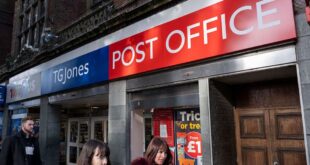In the dynamic and rapidly evolving South African market, the landscape of last-mile delivery is undergoing a profound transformation, driven primarily by the exponential growth of e-commerce.
As consumer preferences shift toward online shopping, the demand for efficient and reliable delivery services has never been higher. This article explores the key factors and specifics shaping the current state and outlook of last-mile delivery in South Africa.
Distinctiveness of South Africa’s CEP market
South Africa’s CEP market stands out due to its focus on fulfilling e-commerce sales, accommodating just-in-time deliveries and handling specialized shipments such as time-sensitive medical supplies. The ‘on-demand’ niche is increasingly dominated by private courier services, with the South African Post Office struggling to compete and plagued by historical service issues and limited reliability.
Catalyst for change
The surge in e-commerce activities, driven by giants like Amazon, Shein and local players such as Takealot and Massmart, has been nothing short of transformative. Recent figures from the World Wide Worx 2024 Online Retail Report indicate that South Africa’s online retail sector reached approximately R 71bn (US$3.9bn) in 2023, marking a substantial 29% increase from the previous year.
This growth underscores the critical role of last-mile delivery in delivering and enhancing the overall online shopping experience. This increased interest has prompted logistics providers to innovate and expand their delivery networks to meet these heightened expectations.
OOH is coming
Out-of-home (OOH) delivery services are gaining traction, catering predominantly to the last-mile ‘pickup’ segment. While specific volume percentages are challenging to pinpoint, the deployment of alternative delivery points such as smart lockers are on the rise.
Currently, South Africa boasts approximately 1,200 pick-up drop-off smart lockers, mainly operated by PUDO (part of The Courier Guy group). BobBox is a new player, currently offering 50 lockers nationwide. However, DSV is in the process of closing down its network of about 400 machines.
As one might expect, PUDO points are more proliferous than automated parcel machines (APMs), with Pargo and Paxi operating some 4,000+ and 2,800 respectively. The OOH landscape is dominated by agile private players that offer an extensive network of access points across the country. These companies have capitalized on the demand for flexible delivery options, contrasting with the sluggish adaptation of traditional postal services.
Winners and losers in the market
Adaptability has been the hallmark of success in this evolving landscape. Companies that foresaw the e-commerce boom and invested in infrastructure have emerged as winners. Conversely, entities that failed to innovate, such as the South African Post Office, have faced dwindling relevance in the competitive market. As with most markets, from large corporations to SMEs, reliability and service excellence are paramount considerations for e-commerce stakeholders. While price remains a key factor, customers place increasing emphasis on consistent delivery performance and convenient pickup options, especially in light of persistent challenges like power outages and security concerns.
One of the specific challenges faced by operators in South Africa is the regulatory environment, which remains a mixed bag, with apparently limited government support for private courier services in direct competition with the South African Post Office.
Outlook and expectations
Looking ahead, the future of last-mile delivery in South Africa hinges on improving speed, service quality and accessibility to OOH delivery points. Smart lockers are poised to play a crucial role in meeting these expectations, providing consumers with convenient, 24-hour access to their parcels and facilitating hassle-free returns.
In summary, the evolution of last-mile delivery in South Africa is a testament to the sector’s resilience and adaptability in the face of a rapidly growing e-commerce market and quite unique infrastructural and security issues. By embracing technological advancements and prioritizing customer satisfaction, carriers can secure a competitive edge in this vibrant and ever-changing landscape.
Source link



